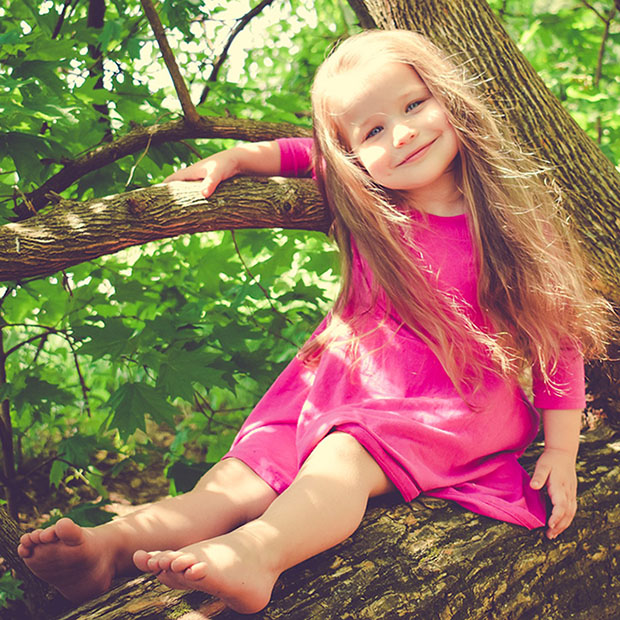Helping Your Child Develop Healthy Vision

Seeing isn’t just something babies do automatically; they have to learn how first!
Just like learning how to walk and talk, babies have to develop a number of visual skills in order to use their eyes effectively and understand what they’re looking at. It’s a process that parents can do a lot to help along, which includes everything from choosing the best age-appropriate toys to recognizing the time to stop playing peek-a-boo.
The First Six Months of a Baby’s Eyesight
To an infant, the world is made up of blurry shapes, light, and shadow. The only distance they can really focus at is about 8-15 inches from their face, which happens to be the perfect distance to see the person holding them! In time, their vision becomes sharper and clearer, and here’s what parents can do to help with that:
- Provide plenty of color. Color vision takes a few weeks to begin developing, but once it does, they won’t be able to get enough of those pretty bright colors, which is why mobiles are great.
- Move objects in front of them to encourage them to track movement with their eyes.
- Play peek-a-boo. It’s not just about making them laugh (although that would be worth it on its own); it’s an important way to help them practice focusing their eyes!
Rapid Progress in Months 6-12
Around month six, Baby will begin to develop hand-eye coordination. You can help by providing lots of colorful objects to grab and play with. They also learn coordination by crawling, though they might take a couple of bumps on their noggins before they understand that their heads keep going above their eyes!
Sometime in this range of months, Baby is going to get bored of peek-a-boo. They’ve figured out the trick of object permanence; Mommy and Daddy aren’t actually wizards who blink out of existence when they’re out of sight. When this happens, it’s time to move on to playing hide-and-seek by hiding a toy under a blanket and challenging them to find it.
Advanced Visual Skills That Come During Toddlerhood
Learning to walk will take those coordination skills even further, and playing with balls will help. A toddler’s visual skills are also connected to comprehension and balance, and as they begin talking, they can put names to the objects they see. Around age two, toddlers may start discovering artistic abilities, so bring out the paper and crayons! They will also enjoy big interlocking blocks or blocks made of wood at this age.
Eye Exams Play a Big Role in Early Childhood
Providing the best toys and playing the right games with your baby are all very important, but don’t forget to bring them in for an eye exam too. Babies and toddlers can’t tell us when there’s something wrong with their eyesight, so they need eye doctors to check for them more than anyone. This is why we recommend scheduling the first eye exam for when they’re six months old, and the second for around their third birthday.